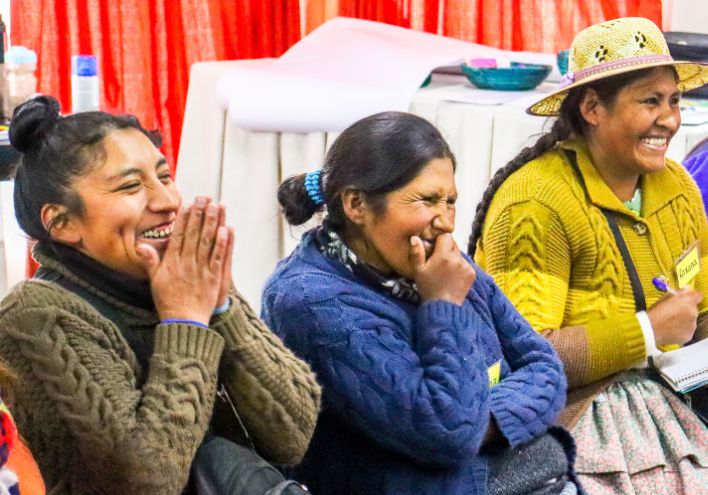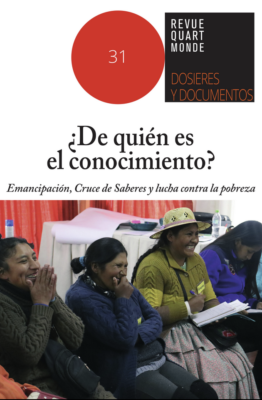Whose Knowledge Is It?

This article is from ATD Fourth World’s 2023 annual report.
Latin America and the Caribbean
Published in October 2023, ¿De quién es el conocimiento? Emancipación, Cruce de Saberes y lucha contra la pobreza (Whose Knowledge Is It? Empowerment, the Merging of Knowledge, and the Fight to End Poverty), is ATD Fourth World’s first publication using the Merging of Knowledge approach entirely conceived and written in Spanish. The book is based on the experience of participatory processes developed since the 1960s in Spanish-speaking countries. It is a continuation of the presence and action of ATD Fourth World teams in Latin America and the Caribbean who work alongside people living in poverty. Together they build spaces where marginalised people can participate and contribute their life experiences.
 The development of the “Merging of Knowledge from Latin America” training programme enabled people living in poverty, academics, and professionals from social organisations — all co-researchers — to explore the principles and methodologies used in the Merging of Knowledge approach.
The development of the “Merging of Knowledge from Latin America” training programme enabled people living in poverty, academics, and professionals from social organisations — all co-researchers — to explore the principles and methodologies used in the Merging of Knowledge approach.
Contacts that were established at the regional level and the relationships that developed among all the co-researchers resulted in two virtual meetings. These meetings aimed to respond to Joseph Wresinski’s questions and challenge with regard to the role of universities and their responsibility to develop a knowledge of poverty that incorporates the knowledge of people who actually experience
it.
Insights and experiences
Drawing from these discussions, the book presents a selection of insights and experiences related to participatory research and to the role of people working to end poverty. The participants offer their perspectives and discuss the challenge of recognising and strengthening the knowledge of people who experience poverty — an essential component in shaping an understanding of poverty. The book also examines Latin American contributions to developing participatory methods and provides a comprehensive exploration of the methodological challenges of the Merging of Knowledge approach.
Bringing together these experiences is a significant step in disseminating the Merging of Knowledge approach in the Spanish-speaking world, paving the way for new initiatives to build truly participatory and transformative processes.

